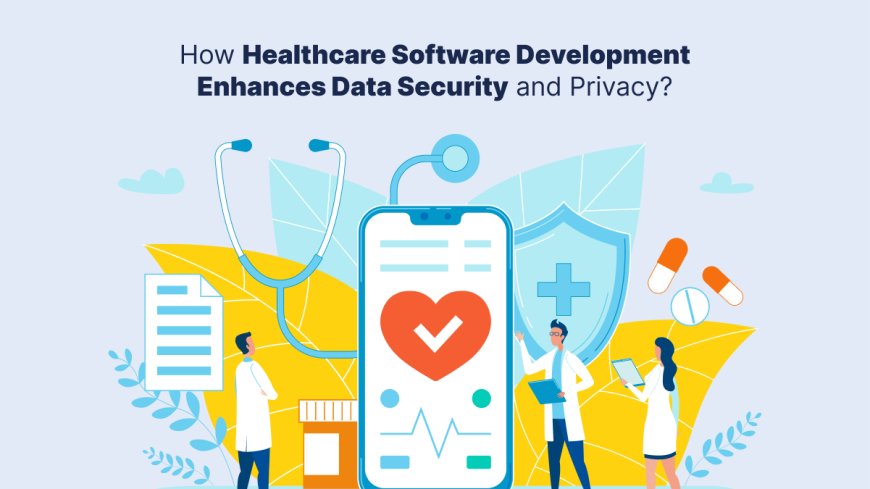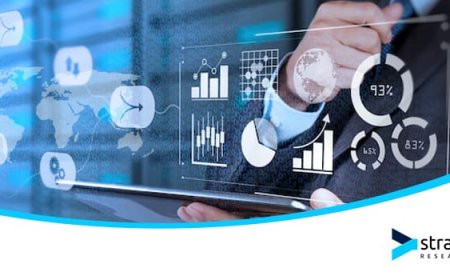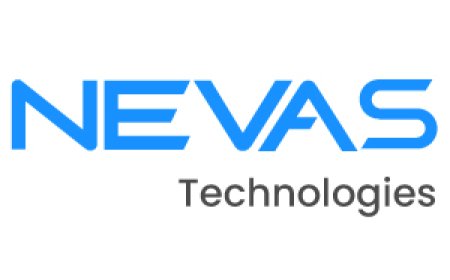How Healthcare Software Development Enhances Data Security and Privacy?
Discover how healthcare software development enhances data security and privacy with strong encryption, secure access, and compliance with regulations.

In the modern digital age, data is one of the most valuable assets a business can haveand this is especially true in the healthcare industry. Healthcare organizations deal with massive volumes of personal information, including medical records, prescriptions, insurance details, and even biometric data. This sensitive data needs to be protected at all times, as any unauthorized access or data breach can have serious consequences for both patients and healthcare providers.
With the increasing digitization of healthcare services, the need for strong data security and privacy measures has become more critical than ever. This is where healthcare software development comes into play. Custom healthcare software solutions are designed not only to streamline operations and improve patient care but also to enhance data protection and ensure privacy compliance. Lets explore how healthcare software development helps safeguard sensitive data, what technologies are involved, and why its essential in todays healthcare environment.
The Importance of Data Security and Privacy in Healthcare
Why Is Data Security Crucial in Healthcare?
Healthcare data is highly valuable and attractive to cybercriminals. It contains full identities of individualsnames, addresses, medical histories, insurance details, and even payment information. Unlike a stolen credit card that can be canceled, medical records cannot simply be replaced, which makes them much more profitable on the black market.
Because of this, healthcare data breaches can be devastating. They can lead to identity theft, insurance fraud, loss of trust in the provider, and hefty legal penalties for the organization involved. For healthcare providers, ensuring data security is not only a legal obligation but also a core responsibility to their patients.
The Role of Privacy in Patient Trust
Patients trust healthcare organizations to handle their data with care. If a patient feels that their personal information is not safe, they may hesitate to share important details, which could negatively impact their treatment. Privacy isn't just about legal complianceits also about building and maintaining trust between healthcare providers and the people they serve.
How Healthcare Software Development Strengthens Security
Secure Architecture Design
Healthcare software development companies design the system architecture with security as a primary focus. Right from the planning stage, developers consider how data will flow, where it will be stored, and how it will be accessed. By building secure pathways for data to travel through, they reduce the chances of leaks, interceptions, or breaches.
Developers often use a layered approach to architecture, adding multiple levels of protection such as firewalls, encryption layers, and access control systems. This reduces the risk of a single point of failure in the system.
Encryption of Data
One of the most effective ways to protect data is through encryption. Healthcare software encrypts sensitive data both while it's stored (data at rest) and while it's being transferred (data in transit). This means even if someone gains access to the system illegally, they wont be able to read the data without proper decryption keys.
Healthcare software developers ensure that encryption standards meet or exceed industry regulations, such as those set by HIPAA or GDPR.
Access Control and User Permissions
Not everyone in a healthcare organization needs access to all patient data. For example, a receptionist may need to confirm appointments but not view a patients full medical history. Healthcare software is designed to allow different access levels based on job roles.
Through Role-Based Access Control (RBAC), developers set up systems where only authorized personnel can access certain types of data. This reduces the risk of internal data leaks and limits exposure of sensitive information.
Authentication and Authorization Protocols
Another critical aspect of healthcare software development is strong user authentication. Software developers often integrate advanced login systems such as two-factor authentication (2FA) or biometric login options like fingerprint or facial recognition. These features make it much harder for unauthorized users to gain access to sensitive systems.
Moreover, developers make sure that user sessions expire after a period of inactivity and that users are automatically logged out to prevent unauthorized access.
Continuous Monitoring and Threat Detection
Modern healthcare software often includes features that allow continuous monitoring of user activity and system performance. This helps in identifying unusual behavior that might signal a potential threat.
With built-in threat detection and alert systems, healthcare providers can respond quickly to any suspicious activity, minimizing damage and preventing full-blown breaches. Developers ensure these systems are active and regularly updated with the latest threat intelligence.
Privacy Protection Measures in Healthcare Software
Consent Management Features
Privacy regulations often require explicit consent from patients before their data can be shared or used for specific purposes. Healthcare software includes modules for managing patient consent. These systems allow patients to control who can see their data, what parts of it can be shared, and for what purpose.
This not only meets legal requirements but also empowers patients with more control over their personal health information.
Data Anonymization
In some cases, such as for medical research, patient data can be used without directly identifying individuals. Developers integrate data anonymization tools that strip identifying details from datasets, making them safe to use while still retaining valuable insights for healthcare analysis.
Anonymization also ensures that even if the data is somehow accessed by unauthorized users, it can't be traced back to specific individuals.
Compliance with Legal Standards
Healthcare software must meet strict regulatory standards to be considered safe and legal for use. Developers build software that complies with HIPAA (in the United States), GDPR (in Europe), and other national data protection laws.
Compliance includes features like audit logs, breach notification systems, and detailed reporting tools, all of which help healthcare providers stay on the right side of the law.
Regular Updates and Patch Management
New security threats appear every day, so healthcare software must be kept up to date. Developers provide ongoing support and updates to patch vulnerabilities, fix bugs, and improve performance. These updates are critical for keeping the software compliant and secure over time.
The Role of Emerging Technologies
Artificial Intelligence (AI) for Security
AI can help healthcare software identify patterns in user behavior and detect anomalies that may indicate a security threat. For example, if someone suddenly accesses hundreds of patient records in a short time, the system can flag this as suspicious activity and send an alert.
AI tools also assist in automating threat detection and improving overall system resilience.
Blockchain for Data Integrity
Blockchain technology is gaining interest in healthcare for its ability to store data in a decentralized and tamper-proof way. Each transaction in a blockchain is verified and added as a new block, creating an unchangeable history of data access.
Healthcare software using blockchain can enhance data integrity, track changes more transparently, and give patients more control over who can access their records.
Read more: How Healthcare Software Development Consultation Ensures Better Compliance?
Benefits of Healthcare Software for Security and Privacy
- Improved Patient Trust: Secure and private systems show patients that their information is in safe hands, building loyalty and trust.
- Regulatory Compliance: Well-developed software helps healthcare providers meet legal obligations and avoid fines or penalties.
- Fewer Data Breaches: With built-in security features, theres a lower risk of unauthorized access or cyberattacks.
- Greater Operational Efficiency: Automated privacy and security tools reduce manual work, letting healthcare staff focus more on care delivery.
- Faster Response to Threats: Integrated monitoring tools allow healthcare providers to detect and react to threats in real-time.
Conclusion
As healthcare systems continue to rely on digital tools, ensuring the security and privacy of patient data is more important than ever. Healthcare software development plays a crucial role in this effort by building solutions that are not only efficient and user-friendly but also secure and compliant with global standards. From encrypted communication and access control to consent management and regulatory compliance, every aspect of the software is designed to protect patient information.
Choosing the right development team can make all the difference. Healthcare software must be built by professionals who understand both the technology and the legal landscape surrounding patient data. When healthcare organizations invest in secure, privacy-focused software solutions, they safeguard their patients, maintain trust, and stay prepared for future challenges.
If your healthcare organization is planning to digitize its services, partnering with a company that offers reliable on demand app development services can help you create solutions that are both functional and fully secure. With the right guidance and development support, you can offer your patients better experiences while ensuring their data remains protected.
FAQs
What types of data are most vulnerable in healthcare systems?
Data such as medical histories, insurance records, and patient identification details are among the most sensitive and frequently targeted by hackers.
How does healthcare software help prevent data breaches?
By incorporating encryption, access controls, authentication systems, and real-time monitoring, healthcare software reduces the chances of unauthorized access and detects threats early.
Is HIPAA compliance necessary for all healthcare software?
Yes, if the software handles protected health information (PHI) in the U.S., it must comply with HIPAA regulations to ensure legal operation and data security.
What is the role of encryption in healthcare software?
Encryption transforms data into unreadable code, ensuring that even if the data is intercepted or accessed illegally, it cannot be understood or misused without proper decryption.
Can patients control how their data is shared using healthcare software?
Yes, many healthcare software solutions include consent management features that allow patients to choose who can access their data and under what conditions.

































